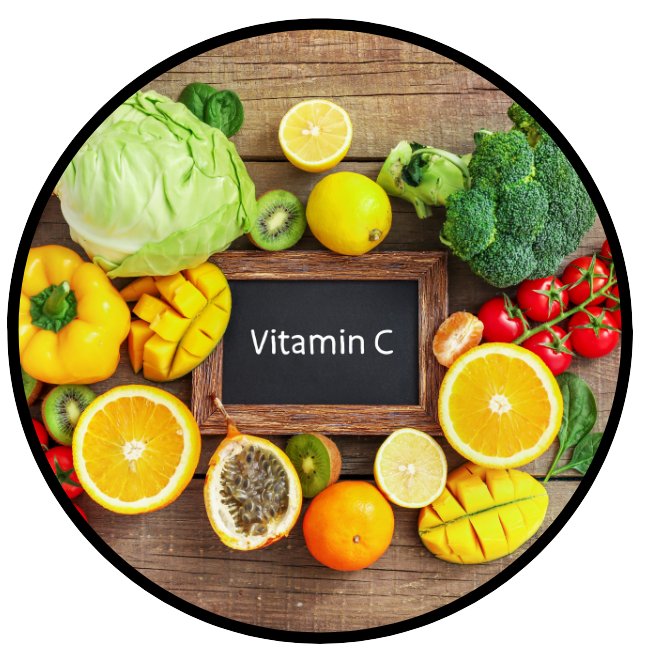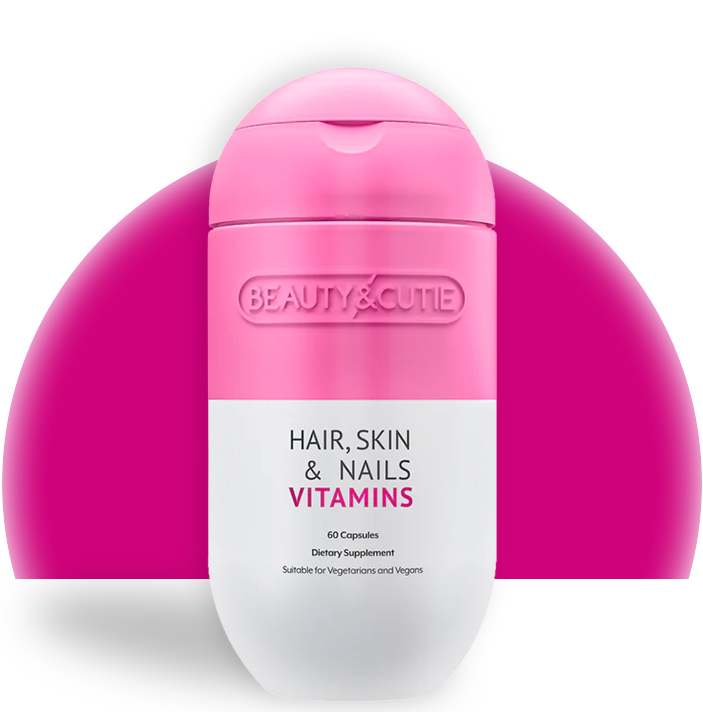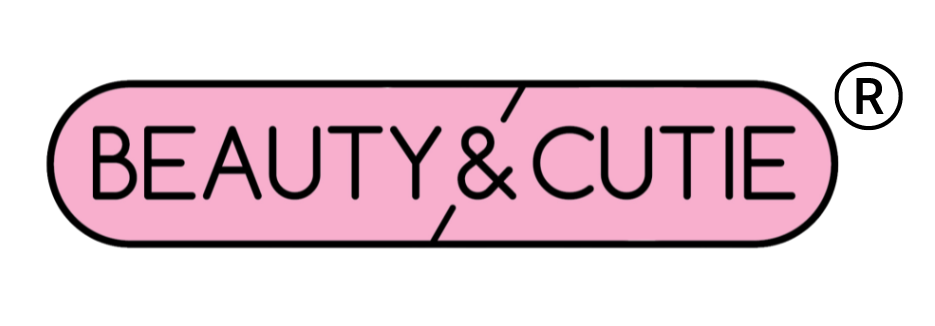
WHAT IS VITAMIN C?
Vitamin C, also known as ascorbic acid, is an essential vitamin our body needs to maintain good health. Sodium or calcium ascorbate, or other types of ascorbates, are other forms of vitamin C that you may see listed on your supplement label. Other forms that supplement labels include sodium ascorbate, calcium ascorbate, or other mineral ascorbates. Ascorbates are simply salts of ascorbic acid. Ascorbic acid can be obtained from both natural dietary and synthetic sources. The source (natural versus synthetic) does not appear to be an important factor in it's effectiveness1. Ingesting an adequate amount of vitamin C is essential for two main reasons:
- It is water-soluble, meaning your body’s stores are depleted more rapidly through urination than, for example, fat-soluble vitamin E that your body can store.
- Our body is deficient in a critical ingredient required to produce vitamin C. As a result, we can only acquire vitamin C through diet and/or supplementation.
Excellent natural sources of vitamin C are available from fruits and vegetables. Those that are particularly rich sources include:
- Citrus fruits
- Kiwi
- Mango
- Broccoli
- Tomatoes
- Peppers

Beauty & Cutie
Our bodies can not produce vitamin C by themselves. We need to get it through diet or supplementation

WHY IS VITAMIN C IN MY PRODUCT?
Our bodies are dependent on external sources of vitamin C to meet our daily needs, so we need to acquire it through diet or supplementation.
It is important for disease prevention, and when you were a child, you were probably told by your mother that if you didn’t eat your fruits and vegetables, you’d get scurvy. Though you might think this is an old wive’s tale and no longer relevant, it is still very much a legitimate concern today2.
There are many other benefits of vitamin C. We have already discussed here how it acts in concert with vitamin E as an antioxidant, rejuvenating the antioxidant properties of vitamin E3 after it has neutralized free radical species. But even by itself, vitamin C can be a powerful antioxidant. It has been shown to keep free radical reactive oxygen species (ROS) in skin cells exposed to harmful ultraviolet radiation to the same levels observed prior to irradiation4 and without any indication of inflammation or skin cell death.
Another critical role of vitamin C is in the production of collagen. Collagen is the most abundant protein in your body and can be thought of as its main building material. It helps keep your skin firm and is important for skin renewal, where dead skin cells are replaced by healthy cells. Vitamin C is known5 to be very effective in improving the production rates of collagen6. As we age, our ability to produce collagen decreases7, but with vitamin C supplementation, the rate of collagen production can be enhanced, with the degree of enhancement the same regardless of age8.
Vitamin C is also crucial for our health as it helps our body to incorporate the essential mineral iron (Fe)9, required for the production of hemoglobin, which is necessary for the transportation of oxygen throughout the body. Low hemoglobin levels are usually a result of a shortage of Fe and lead to anemia. There is also evidence that lack of oxygen to the scalp can adversely affect hair growth10 and hair diameter, while exposure to higher than normal pressures of oxygen increased hair growth rate. These types of exposures to high oxygen pressures are now being exploited in spas and clinics as topical oxygen therapies11, transporting oxygen to the skin from outside your body. Proper maintenance of iron levels with the help of vitamin C will transport oxygen to the skin from inside your body.
WHAT IS THE ROLE OF VITAMIN C IN HAIR, SKIN, AND NAILS?
As mentioned above, Vitamin C can work by itself or with vitamin E to protect the skin from harmful UV radiation from the sun by halting ROS formation, scavenging free radicals, and maintaining the health of your skin cells12.

Other benefits to skin health include:
- Inhibits melanin13 production (a skin pigment), which is responsible for age spots.
- Improves prevention of dry skin by supporting the growth of outer healthy skin layers,14 which help seal moisture into your skin
- Possibly protect against wrinkle formation15 through the enhanced synthesis of collagen.
- Improves wound healing16, which is also related to improved collagen synthesis elicited by vitamin C.
Though vitamin C has not been strongly directly linked to hair health, its impact on the ability of the body to incorporate iron is important. There are direct links between iron deficiencies and hair loss,17so maintaining healthy levels of vitamin C can indirectly promote healthy hair growth by helping our bodies absorb iron. Women that are menstruating, pregnant, or on vegan or vegetarian diets are more at risk of having iron deficiencies.
Besides the benefits for hair and skin, vitamin C is also important for healthy teeth and gums. Studies have shown that patients suffering from periodontal disease (e.g. gingivitis) have vitamin C deficiencies18. So to maintain a beautiful smile, a healthy daily diet containing fruit and vegetables or supplementation with vitamin C is important.
References:
- https://pubmed.ncbi.nlm.nih.gov/8302486/
- https://www.ncbi.nlm.nih.gov/pmc/articles/PMC7400810/
- https://www.nature.com/articles/278737a0
- https://www.sciencedirect.com/science/article/abs/pii/S1011134416303670
- https://pubmed.ncbi.nlm.nih.gov/23228664/
- https://pubmed.ncbi.nlm.nih.gov/25015208/
- https://www.ncbi.nlm.nih.gov/pmc/articles/PMC1606623/
- https://pubmed.ncbi.nlm.nih.gov/7518857/
- https://pubmed.ncbi.nlm.nih.gov/25048971/
- https://pubmed.ncbi.nlm.nih.gov/32727280/
- https://dpcj.org/index.php/dpc/article/view/dermatol-pract-concept-articleid-dp0804a04
- https://pubmed.ncbi.nlm.nih.gov/9036929/
- https://www.ncbi.nlm.nih.gov/pmc/articles/PMC7802860/
- https://pubmed.ncbi.nlm.nih.gov/11918700/
- https://pubmed.ncbi.nlm.nih.gov/12823436/
- https://www.magonlinelibrary.com/doi/abs/10.12968/bjcn.2013.18.sup12.s6?rfr_dat=cr_pub++0pubmed&url_ver=Z39.88-2003&rfr_id=ori%3Arid%3Acrossref.org
- https://pubmed.ncbi.nlm.nih.gov/17951130/
- https://www.mdpi.com/2072-6643/12/8/2255
